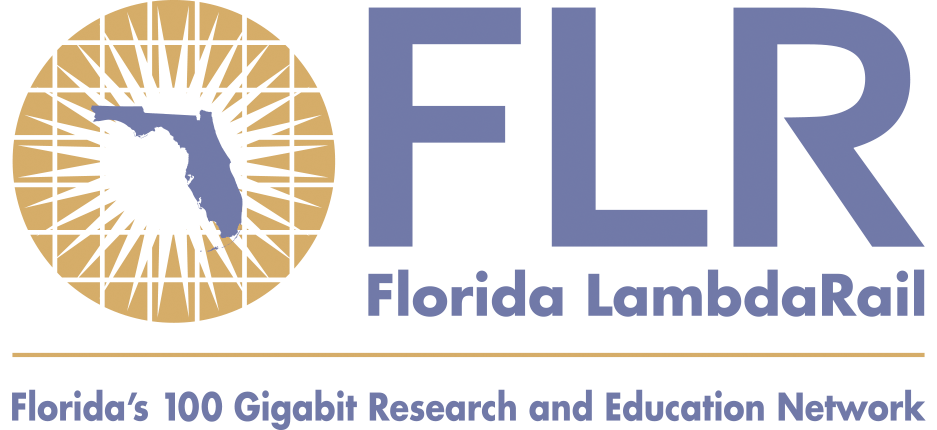Florida LambdaRail (FLR) takes pride in customer service; knowing it’s both an obligation and a privilege to serve the needs of Florida’s research and education community. Meeting that obligation, FLR recently surveyed members about their technology needs over the next five-to-ten years and is utilizing this information to grow their network in a purposeful way as well as fully understand what types of services their members will want and need.
The responses, which were in broad alignment with the results of the Educause Top 10 IT issues for 2019, indicated that the next five-to-ten years will require a focus on Security (highest priority), Data, Funding, Student Success Issues, Cloud Services migration, Research Computing, and Big Data capabilities.
FLR is already taking steps to help members meet these new demands. Working with Internet2, they have incorporated a system-wide distributed denial-of-service (DDoS) solution that covers every FLR participant at no additional cost to members. They have created a Science DMZ, following the ESnet Science DMZ model, that has been established across their entire network backbone. A Science DMZ is a portion of the network, built at or near the network perimeter, designed so equipment, configurations, and security policies are optimized for high-performance scientific applications rather than for general-purpose business systems or “enterprise” computing. To date, four FLR campuses have connected to the FLR Regional Science DMZ with several others in progress.
FLR will soon bring the Sunshine State Educational and Research Computing Alliance (SSERCA) into operation. SSSERCA is a collaboration of Florida’s public and private universities that promotes the development of a state-wide, computational science infrastructure of advanced scientific computing, communication and education resources. Incorporating SSERCA into FLR will provide researchers with the assets they need to better manage their efforts while freeing their members to focus on core research computing initiatives.
FLR members are planning to upgrade their Enterprise Resource Planning (ERP) systems soon. To assist them, FLR is developing a plan to help them navigate new ERP procurements and implementations. Meetings will take place over the next several months to identify areas of common need from human resources and fiscal to student support systems. As a convening agent, FLR’s strength is in the diversity of their membership. Not every school will need the same solution, but there are enough commonalities that having FLR involved in the early stages provides benefits to all.
Routinely surveying their membership is an important part of how FLR provides good service and at their core, that is what all research and education networks do. The feedback gained from routine engagement keeps FLR fresh and is essential to identifying and negotiating important services for the community. FLR members expect the best tools and solutions to remain at the cutting edge of technology and FLR provides them with exactly that.

